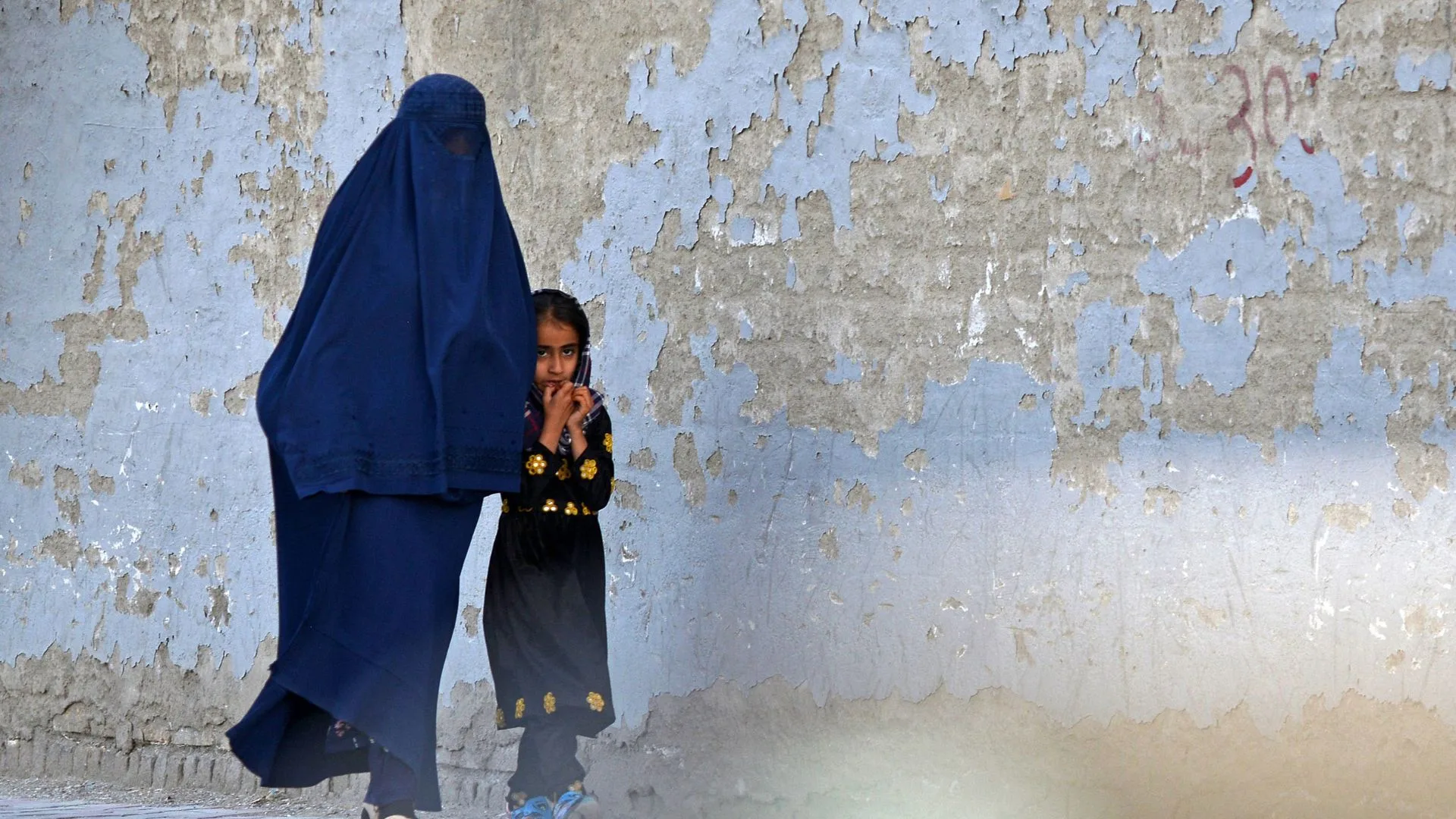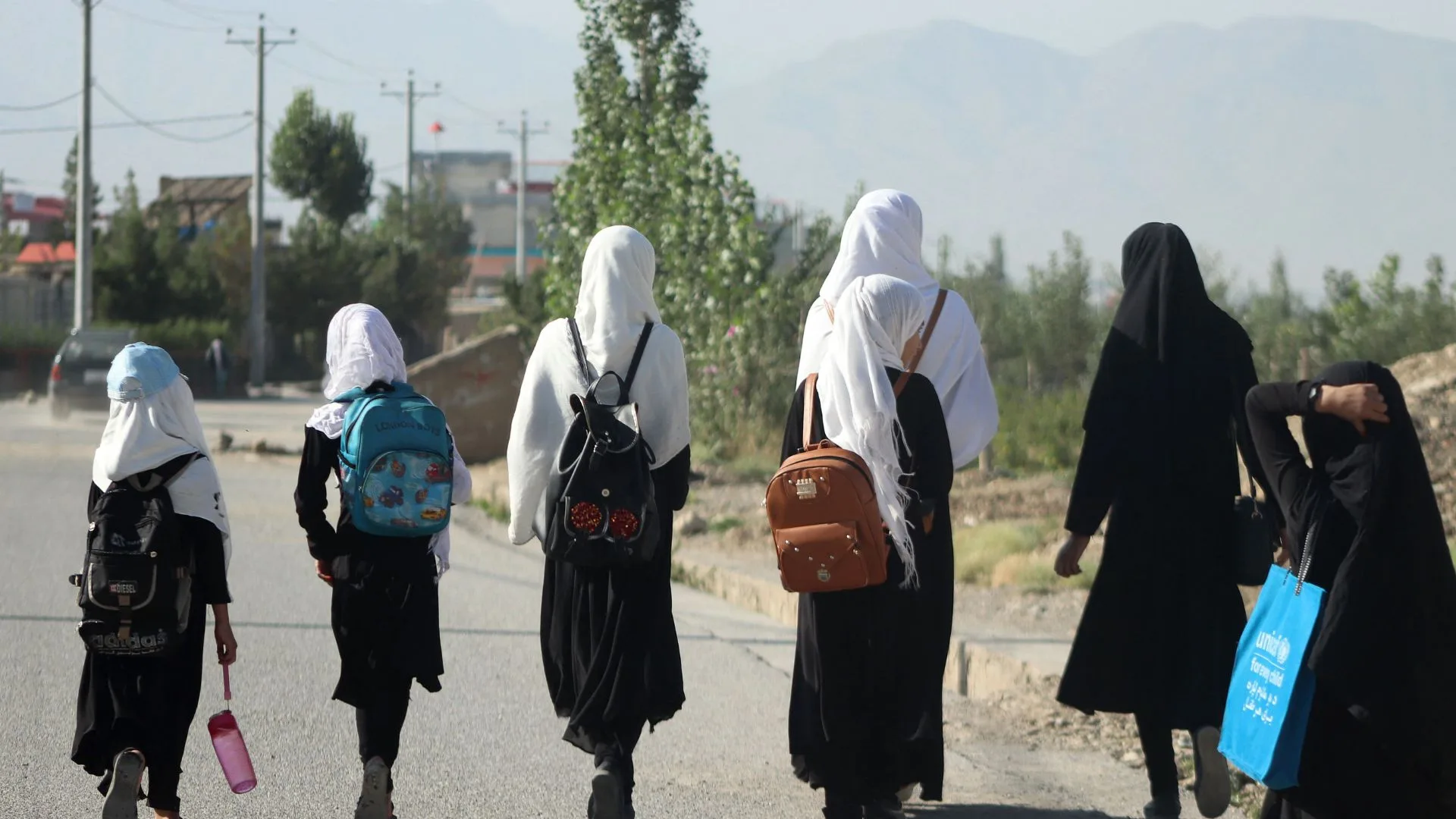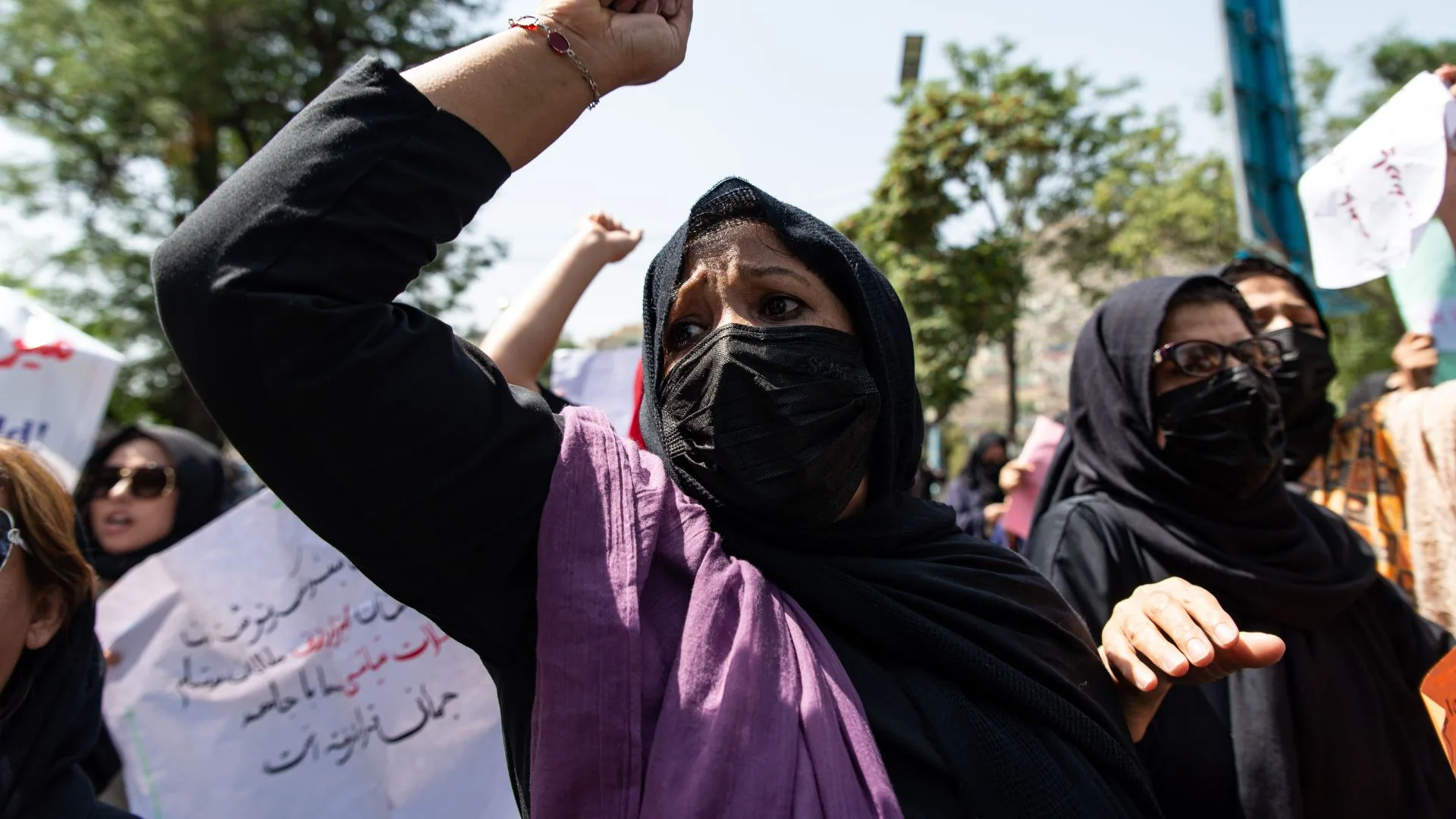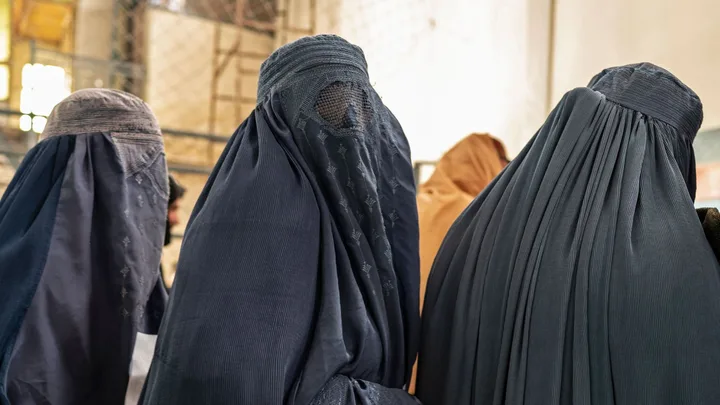Content Warning: This article discusses political violence against women and minority groups
The Taliban has caused international alarm with the introduction of devastating new ‘morality laws’, which effectively create an environment where women are neither seen nor heard in Afghanistan.
The new ‘morality laws’ — implemented last week — ratify the Taliban’s Law on the Promotion of Virtue and Prevention of Vice. In a statement, Roza Otunbayeva, the head of the U.N. Assistance Mission in Afghanistan, said that the laws present “a distressing vision for Afghanistan’s future.” “It extends already intolerable restrictions on the rights of Afghan women and girls, with even the sound of a female voice outside the home apparently deemed a moral violation.”
Breaking Down The New Morality Laws
A government spokesperson said the new set of laws, approved by supreme leader Hibatullah Akhundzada, contains 35 articles.
ABC News reported that article 13 formally outlines restrictions for women. Women must now wear attire that fully obscures their bodies and faces in public. A woman’s voice is deemed “intimate”, and women are barred from singing, reading aloud or speaking aloud in public. Women are forbidden from looking at men they are not related to by blood or married to, and vice versa.
The sweeping bans also formally restrict women’s freedom of movement, instructing vehicle drivers not to transport women without a male guardian.
Men and local media are also affected by the series of decrees. Men are required to grow beards, car drivers are banned from playing music, local media must abide by sharia law, and the publication of images containing living beings is banned.
“Women must now wear attire that fully obscures their bodies and faces in public. A woman’s voice is deemed ‘intimate’, and women are barred from singing, reading aloud or speaking aloud public. Women are forbidden from looking at men they are not related to by blood or married to, and vice versa.”
In February this year, as reported by Radio Free Europe, authorities in the Afghan province of Kadahar ordered officials not to take pictures or videos of “living things.” because it “causes more harm than good.” Images of humans and animals are generally avoided in Islamic art. For some Muslim people, this extends to an aversion to images of living things.
However, a ban on media distributing images of living things makes producing news even harder. Previously, the media have been barred from broadcasting and publishing stories that are critical of the Taliban. The new rule would, for example, make it impossible for families to use news outlets to distribute images of missing persons, a common problem in Afghanistan where the Taliban are known for “disappearing” people: according to a New York Times investigation, the Taliban was found to have killed or forcibly disappeared close to five hundred former government officials and members of the Afghan security forces in its first six months of power.

How The Morality Laws Impact Women And Girls
Women are disproportionately affected by decrees made under Taliban rule.
“Day by day, they are trying to erase women from society,” a 37-year-old woman in Kabul told Reuters. Another woman who was identified only by her first name said: “The silence of the international community regarding the actions of the Taliban is encouraging them to create new laws and restrictions every day”.
“Given the multiple issues outlined in the report, the new position gives cause for significant concern for all Afghans, especially women and girls.”
Fiona Frazer, the head of the Human Rights Service at the U.N. Mission in Afghanistan
In a response that seems to be in obvious opposition to the new laws, Mohammad Khalid Hanaafi, the minister Ministry for the Propagation of Virtue and the Prevention of Vice of Vice for the Taliban, was quoted by the U.N. as saying: “The Islamic Emirate is committed to granting women all their rights under Sharia Law. Anyone with a complaint in this regard will be heard, and the issue will be resolved.”
How Does This Change The State Of Play In Afghanistan?
It’s important to note that according to Human Rights Watch, many of these rules have already been in place since the Taliban took over Afghanistan in 2021. However, until now, they’ve been policed informally and not written into law.
“I think this is a sign of what we’ve been seeing over the last three years, which is a steady and gradual escalation of the crackdown,” Heather Barr, Associate Director of Human Rights Watch’s Women’s Rights Division, told Reuters.
“The silence of the international community regarding the actions of the Taliban is encouraging them to create new laws and restrictions every day”.
Halema, citizen of Afghanistan
Amnesty International has described Taliban punishment by the nation’s ‘morality police’ as broad-ranging from “arbitrary arrest and detention, to enforced disappearance, torture and other ill-treatment”.
In a report rejected by the Taliban, the UN stated that the morality police act in violation of human rights and fundamental freedoms. It reported that they are creating a “climate of fear and intimidation.”
Fiona Frazer, the head of the Human Rights Service at the U.N. mission in Afghanistan, told ABC News: “Given the multiple issues outlined in the report, the new position gives cause for significant concern for all Afghans, especially women and girls.”

International Response To The Taliban’s Treatment Of Women And Girls
According to a UN report under Taliban rule women and girls have been subjected to dress codes and segregated education that restricts school attendance beyond the sixth grade.
Women’s employment has also been heavily restricted. In July 2023, beauty salons that provided jobs for women were forcibly closed, impacting 60,000 women-owned businesses, according to Amnesty International. Women have been required to be accompanied by a male guardian when they travel and board planes without a male relative, restricted from sports and banned from accessing public parks.
The Taliban had previously promised to allow girls in Afghanistan access to education beyond the sixth grade but have rescinded this.
As reported by APNews, the Taliban made this promise in an effort to win recognition from the international community as a government, the all-male Kabul government is not currently recognised as legitimate by any country. So far, Western countries led by Washington have indicated the Taliban will not be recognised until it reverses its policies on women’s rights and open high schools to girls, according to Reuters.

The History of Morality Policing in Afghanistan
Over the past three years, according to the Taliban’s officials, 13,000 people have been detained for breaches of morality laws, as reported by ABC News.
According to Reuters, the Justice Ministry has said that punishment for violations includes “advice, warnings of divine punishment, verbal threats, confiscation of property, detention for one hour to three days in public jails, and any other punishment deemed appropriate”.
The Taliban suspended Afghanistan’s previous constitution when it took over the country in 2021 and implemented rules based on its interpretation of sharia law.
The Justice Ministry released a statement, quoted by Reuters, as saying: “According to this law, the Ministry (for Prevention of Vice and Propagation of Virtue) is obligated to promote good and forbid evil in accordance with Islamic Sharia”.
Given that the UN report highlighted that Taliban rule enforcement’s unpredictability had further compounded the “climate of fear,” it is currently unclear whether formalising rules will make this enforcement more predictable or more severe.
Help Is Available:
If this article raises concerns for you, please make use of the below resources
- Lifeline: Call the Lifeline 24-hour telephone crisis line 13 11 14
- Beyond Blue Support: Call a counsellor on 1300 22 4636 or talk to a counsellor online
- 1800Respect: Call 1800 737 732 or visit 1800Respect
- Kids Helpline: If you’re under 25, you can reach Kid’s Helpline at 1800 55 1800 or chat online.
Related Articles:
- Afghanistan One Year On: Seven Women Share Their Hopes And Fears
- Three Women Share Their Stories From On The Ground In Afghanistan
- In Afghanistan, Women Are Facing An Unthinkable, Devastating Reality
 Getty/Wakil Koshar/AFP
Getty/Wakil Koshar/AFP









